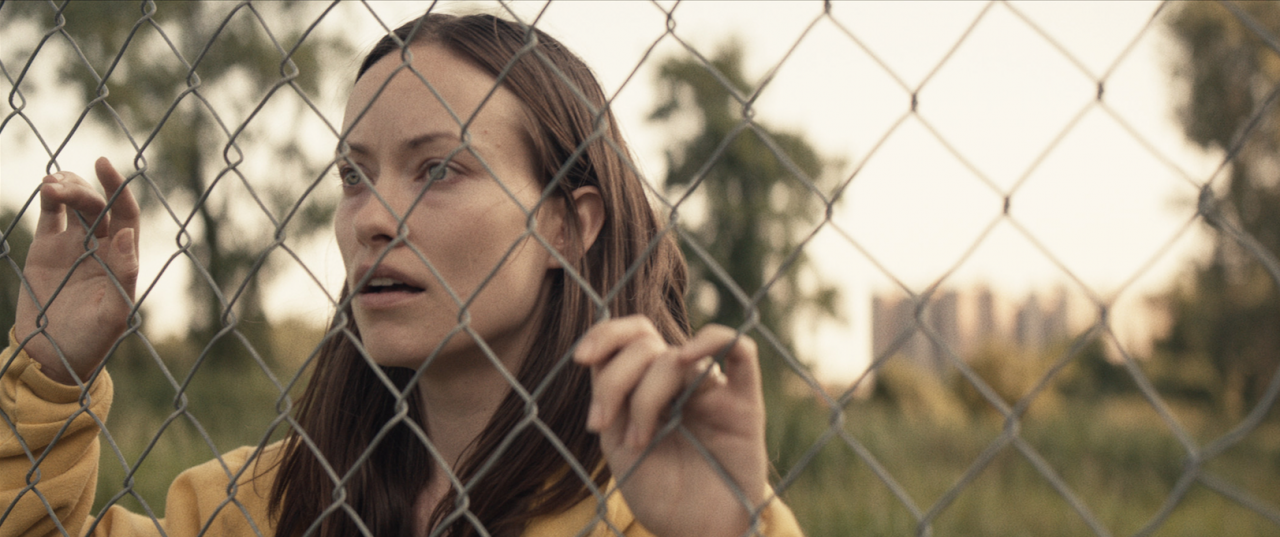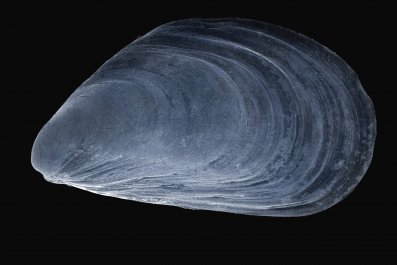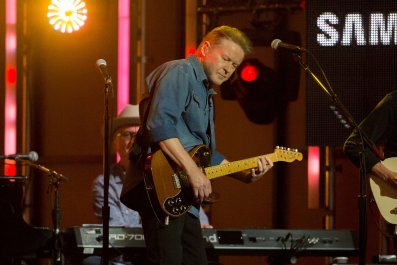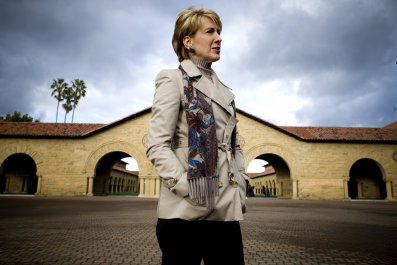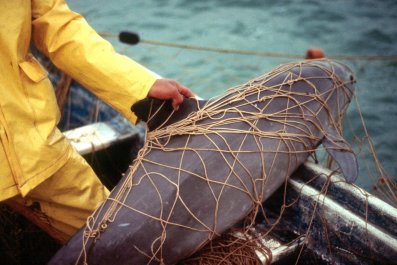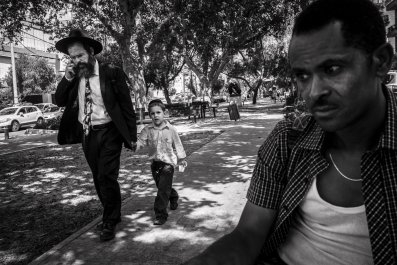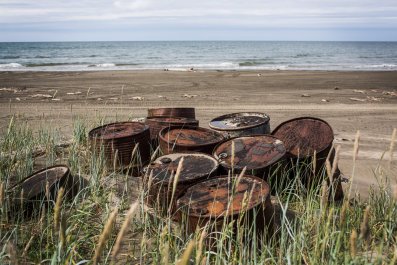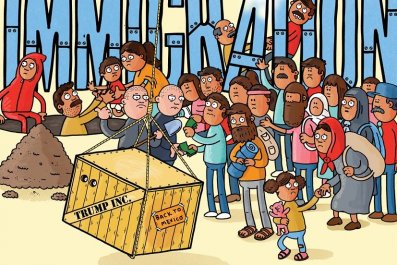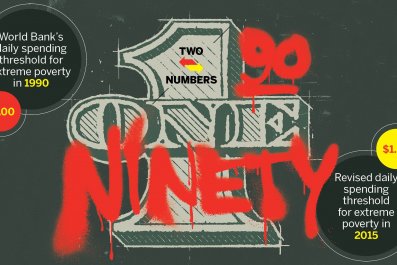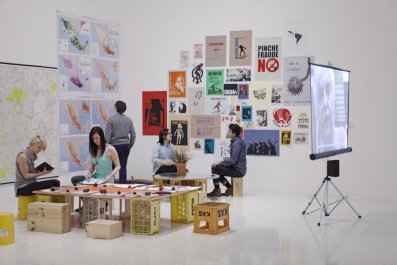After Reed Morano's father died of a heart attack, it was as if her world had morphed into a scene from Rod Serling's The Twilight Zone. "It didn't feel like real life or the real world," says the filmmaker, 38. Grief-stricken, Morano, then 18, attempted to cope with the loss of her parent and confidante—the one who first gave her a camera, encouraged her to go to film school and, although he wasn't in the industry, hoped to make movies with her one day. "What I found kind of interesting when my dad passed away was that everyone in my family had their own unique reaction: Some people in my family shut down, stopped eating," she tells Newsweek.
Morano says she began doing "bad things," including "a lot of drugs," after his death. "You get to a point where you feel so betrayed by the world that you feel like, Fuck everything—there's no repercussions for anything I do." Her most extreme outburst occurred a year after his funeral, while sitting in her family's restaurant and reminiscing about her father with his best friend. She says she was suddenly struck with an acute sadness, got up and locked herself in the back office. Then, without a word, she began to tear the place apart—toppling filing cabinets, ripping papers, knocking things off the walls.
That real-world trauma from 20 years ago informed Morano's recent directorial debut, the gripping film Meadowland, which left many grown men in tears at its Tribeca Film Festival premiere this past April (it hits theaters on October 16 and video on demand October 23).
Meadowland traces the unraveling of a couple, Sarah (Olivia Wilde) and Phil (Luke Wilson), as they grieve over the disappearance of their young son, Jessie (Casey Walker), who was abducted at a gas station on a family road trip. He goes missing within the first five minutes, and the remaining hour and a half of Meadowland deals with the aftershocks of this cataclysmic event, as Jessie's whereabouts and life remain in limbo. Meadowland "in a way deals with having to face that you're never going to see someone again, imagining the unthinkable and unimaginable," Morano says. "Nobody wants to do that."
Phil, a New York City cop, comes across a memorial for someone who died alongside the highway while on patrol one night. He shuts off his car and gets out. Wordlessly, he begins to smash up the memorial, kicking over candles, crosses and cards until they are scattered in the dirt, just as young Morano had done in the back office as she grappled with her grief.
It's a hard scene to watch, but Morano isn't afraid to go to those places in her work. It's this willingness that's quickly made her one of film's most sought-after cinematographers, one Wilde describes as "easily the most agile camera operator I've ever worked with." Before Meadowland, Morano was director of photography for the Sundance standout Kill Your Darlings and the idiosyncratic drama The Skeleton Twins. Currently, she's the DP on HBO's highly anticipated, Martin Scorsese–backed '70s period piece Vinyl. Earlier this year, she was named woman of the year during the Fusion Film Festival of New York University's Tisch School of the Arts.
Over oysters at a Brooklyn bar, Morano says her approach to filmmaking has been successful because she doesn't "like making too many plans" and instead lets the actors' intuition drive scenes. Meadowland was shot in just 22 days with little rehearsal, giving it spontaneity. It's perhaps how the film is able to accurately portray grief as something dangerous, with the potential to turn people into unpredictable versions of themselves.
Meadowland's production was also informed by other, more immediate matters of life and death. Before production began, Wilde—the movie's lead actress and one of its producers—discovered she was pregnant with her and fiancé Jason Sudeikis's first child. Pregnancy can be a scary prospect for an actress (and producer) who has just signed on to a new film—one that might threaten a movie and sometimes even a career.
Wilde was also worried that taking the time off would kill her burgeoning creative partnership with Morano. "I called Reed, and I said, 'I don't know how to tell you this...'" Wilde recalls. "I thought, Have I let her down? This is my new partner, and I'm gonna have to bow out and leave her?" Morano was instead thrilled with the news, telling her being pregnant was "perfect research" for the role and would give Wilde "deeper insight as to what it means to be a parent."
Morano also had a profound experience of her own at about the same time. In April 2014, as the film found its financing, she underwent treatment for stage 2 squamous cell carcinoma—cancer of the base of the tongue. Two months later, during the film's pre-production, she found out she was in remission. Though she was still weak when shooting the film in September 2014—"My mouth was all fucked up, and all day long I was gargling Lidocaine"—she says, "I was happy to be doing it."
"[Cancer] was another reference that I drew on to imagine what it would feel like to be in this dark place that Sarah's in," Morano says of the film's main character. "All I wanted to do when I had cancer was get through the next five minutes without physical pain. And with Sarah and Phil, they're just trying to get through the next five minutes without emotional pain."
Wilde adds, "It was extraordinary to each be confronting life and death in such a literal and extreme way as we were putting the story together."
The partnership between Morano and Wilde is unusual in Hollywood. When you think of silver-screen duos, it's usually a bromance: the Coen brothers, Quentin Tarantino and Samuel L. Jackson, Martin Scorsese and Leonardo DiCaprio. Even brilliant female-male partnerships, such as Penelope Cruz and Pedro Almodóvar, or Woody Allen and Diane Keaton, often leave women relegated to the role of the muse, rather than an equal.
Of course, sexism has been Hollywood's open secret since before the talkies. Women in all aspects of the film industry are paid less and have fewer opportunities than their male counterparts, and that difficulty is exacerbated as women hit the dreaded age of 40. This past year, San Diego State University published a study revealing that women held a paltry 12 percent of leading roles in 2014's top-earning films. The statistics for women working behind the scenes aren't encouraging either. According to another study by San Diego State University, women made up just 23 percent of producers, 18 percent of editors and 7 percent of directors in the highest-grossing films of 2014. The numbers are even worse for women cinematographers, who make up just 5 percent of the field.
Morano knows this discrepancy well. She shows me a memo from the International Cinematographers Guild union meeting from which she had just come. It revealed that, in the union's East Coast chapter, a mere 13 women DPs reported their union status, compared with 347 men in the same region. The West Coast didn't fare much better: 53 female DPs were represented, as opposed to 1,115 men. Morano says it's partly due to stereotypes: "When [film] first started, cinematographers were men who were either dressed in suits or white lab coats. [Women] are not the image of who people see holding the camera," she says. "We have to get more images of females holding the camera so people can get used to the idea that it is possible."
Search the Internet for "Reed Morano" and you'll get images of her casually wielding hefty cameras—several months pregnant, no less. "I actually carried a Panavision Platinum and a G2 when I was seven months pregnant for a film called Little Birds, and the whole movie was handheld," she says. "And we were shooting in the desert. That's a 35-millimeter camera. It's huge, probably at least 50, 55 pounds, and I did all my own operating. So when people say that women can't do that job…it's really laughable."
As the youngest of just 12 women in the prestigious American Society of Cinematographers (there are approximately 340 active members in the ASC), Morano can shrug off any negative comments, though she's spent much of her life grappling with loss and being something of an outsider in her industry. But it's these experiences that make her able to create a film like Meadowland, singular in its portrayal of grief—devoid of the melodrama and crying jags that often punctuate these stories (Sarah and Phil cry only once in the film). "I wanted people to feel wrecked after they watched it. Punched in the gut. I didn't want to make a wishy-washy crowd-pleaser; I wanted to make a movie that people couldn't stop thinking about for a few days," she says. "And would maybe call the people they love."



